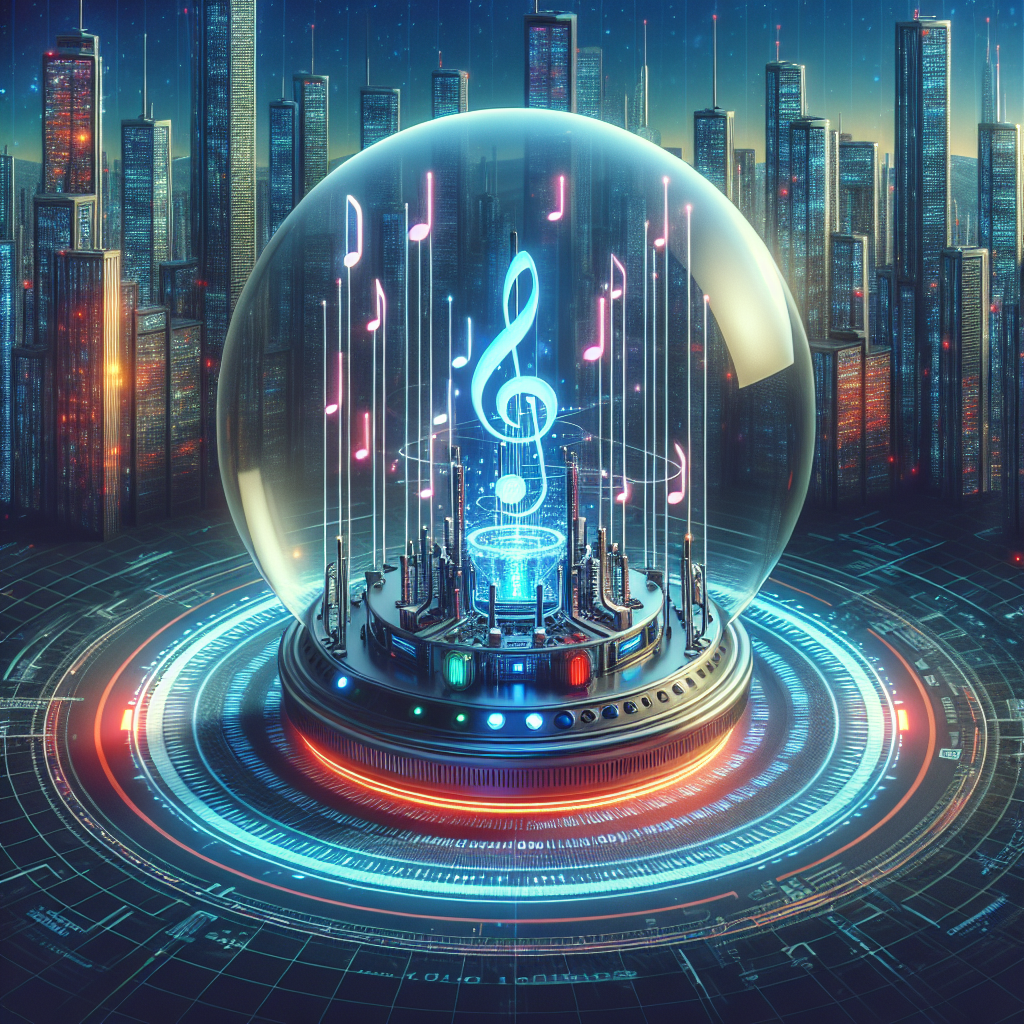Generative AI, also known as artificial intelligence, has been making waves in the music industry in recent years. This technology has the ability to create music autonomously, without the need for human input. This has opened up a whole new world of possibilities for musicians, producers, and music enthusiasts alike. In this article, we will explore how generative AI is transforming the music industry and revolutionizing the way we create and consume music.
One of the most significant ways in which generative AI is impacting the music industry is through the creation of new and innovative compositions. AI algorithms can analyze vast amounts of musical data and create original pieces of music based on patterns and trends in the data. This has the potential to revolutionize the music creation process, as it allows artists to access a virtually limitless source of inspiration and ideas.
Generative AI can also be used to enhance the creative process for musicians and producers. For example, AI algorithms can be used to generate backing tracks, chord progressions, and melodies, allowing artists to focus on other aspects of their music production. This can help streamline the creative process and enable artists to experiment with new sounds and styles more easily.
In addition to creating music, generative AI can also be used to enhance the listening experience for music fans. Streaming services such as Spotify and Apple Music are using AI algorithms to personalize music recommendations for users based on their listening habits and preferences. This has the potential to revolutionize the way we discover new music and artists, as AI can help us find music that we may not have otherwise come across.
Furthermore, generative AI is also being used to create new tools and technologies for musicians and producers. Companies such as OpenAI and Google have developed AI-powered music creation tools that allow users to generate music in real-time based on their input. These tools can be used to create music for a variety of purposes, from background music for videos to full-length compositions.
Despite the many benefits of generative AI in the music industry, there are also some concerns and challenges that need to be addressed. One of the main concerns is the potential for AI to replace human musicians and producers. While AI can certainly assist in the creative process, there is a fear that it could lead to a homogenization of music and a loss of the human touch that makes music unique.
Another challenge is the issue of copyright and ownership of AI-generated music. As AI algorithms become more advanced and capable of creating original compositions, there is a question of who owns the rights to this music. This is a complex legal issue that will need to be addressed as generative AI becomes more widespread in the music industry.
In conclusion, generative AI is transforming the music industry in profound ways, from creating new compositions to enhancing the listening experience for music fans. While there are challenges and concerns that need to be addressed, the potential for AI to revolutionize the way we create and consume music is truly exciting. As this technology continues to evolve, we can expect to see even more innovations and advancements in the music industry in the years to come.
FAQs:
Q: Can generative AI create music that is as good as music created by human musicians?
A: While generative AI has made significant advancements in creating music, it is still not at the level of human musicians in terms of creativity and emotional expression. However, AI-generated music can be a valuable tool for musicians and producers to enhance their creative process.
Q: Will generative AI replace human musicians in the music industry?
A: It is unlikely that generative AI will completely replace human musicians in the music industry. AI can assist in the creative process and provide new tools and technologies for musicians, but the human touch and creativity will always be essential in creating music that resonates with audiences.
Q: How can musicians and producers benefit from using generative AI?
A: Musicians and producers can benefit from using generative AI in a variety of ways, such as generating new musical ideas, creating backing tracks and melodies, and enhancing the listening experience for their fans. AI can help streamline the creative process and provide new sources of inspiration for artists.
Q: What are some of the challenges and concerns associated with generative AI in the music industry?
A: Some of the challenges and concerns associated with generative AI in the music industry include the potential for AI to replace human musicians, issues of copyright and ownership of AI-generated music, and the need to address ethical and legal considerations as AI becomes more widespread in the industry.

